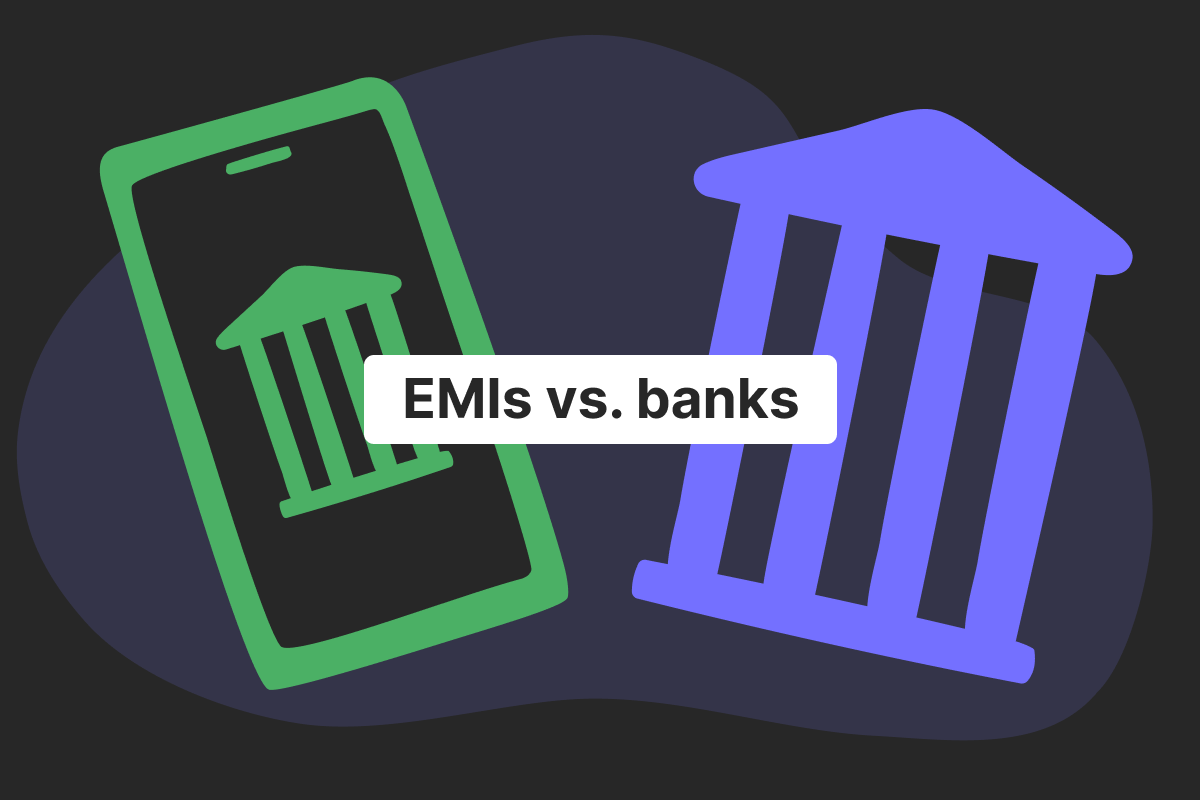Not all debit cards are created equal when it comes to their owner traveling abroad and foreign transaction fees. And, sadly, the cards don’t always cover all countries, so you should be aware of what to expect when traveling to another country.
In this article, our team will take a closer look at what can be deemed as the best debit card for travel, including fees, global acceptance, and security.
Why your choice of debit card matters on the road
When you’re traveling, the last thing you want is to be left without any cash in the middle of nowhere because you can’t access your money.
There are many really frustrating situations that could occur:
Extra fees for services. Some banks impose extra fees for transactions made in certain “high-risk” countries, often charging 2-3% on foreign purchases. This is especially the case for currency conversion operations. These fees can quickly add up, making everyday spending abroad more expensive.
Because of the high-risk status of the host country, your current account may be under special attention, with a real chance of getting a card blocked by banks and remaining without funds until confirmation.
Exchange rates also may not be the greatest: local ATM providers can charge extra for exchanging money and cash withdrawals. Additionally, there are foreign transaction fees when you pay using currency that differs from the foreign cash of a country you travel to.
The availability of ATMs can also be an issue for some of the countries where cash withdrawals will work only if there’s a cash machine of your designated card brand. Moreover, there likely will be fees for ATM withdrawals at other branded ATMs and currency exchange fees.
As you can see, a current account with a debit card to use for cash withdrawals and purchases abroad isn’t just a fancy feature. It directly impacts your budget and overall experience while you are traveling and spending abroad, which is why banks offer special travel cards or additional perks to clients who have to move a lot.
The term “the best travel debit card” is an exaggeration, of course, as different people prefer different services, and their traveling habits vary. However, travel cards designed specifically for foreign transactions and dealing with foreign currencies will definitely help you avoid the pitfalls we listed earlier.
Open an account
in Genome online
Key features to look for in a travel debit card
Many banks and online banking providers usually advertise such products as travel-friendly debit cards, as those usually have additional services to make your round-the-globe journeys easier. As for the features, whether it’s a travel credit card or a regular debit card, it should include most of the tools and services our team has listed below:
Low or zero foreign transaction fees
Many banks charge a 2-3% foreign transaction fee on purchases, transactions, or cash withdrawals outside your home country. Throughout a trip, these charges can add up significantly.
A special travel-friendly debit card should have lower fees for such charges or even offer zero charges for specific scenarios or at specific locations.
Still, finding a fee-free card would be difficult. You’d likely have to deal with a monthly fee / annual fee for card services. Also, a flat fee for ATM withdrawals may apply.
Easy ATM access worldwide
When traveling abroad, another important thing to consider is the brand of a card you want to take with you.
If you use Visa or Mastercard, you are good, as these networks work worldwide. If you prefer regional networks (like Maestro or UnionPay), it is worth noting that they may have limited coverage.
Sometimes, the situation is completely different, and the global card network doesn’t work properly for ATM withdrawals in the country you travel to, but the regional one does.
Convenient currency conversions
Some financial institutions may charge hidden fees by offering exchange rates that include an added margin (often 3-5% above the actual rate). And those currency conversion markups can quietly eat into your budget.
To avoid these, check whether your bank clearly states the exchange rate it uses and whether it aligns with the mid-market rate.
Debit cards vs. credit cards: understanding the difference
Some people may question the decision to use credit cards while traveling. However, in some cases, credit cards can also be useful for this purpose. Let’s review both options.
Debit cards
A travel debit card is directly linked to your bank account, so you can only spend money you earn. Simple and easy.
It provides such benefits as:
Sticking to the budget. There won’t be a risk of overspending or accumulating debt.
Avoiding interest charges. Unlike credit cards, debit cards don’t charge interest.
Cash withdrawals are much simpler. Debit cards offer direct access to ATMs worldwide.
Credit cards
Credit cards work differently compared to debit cards because they allow you to borrow money from the bank up to a set credit limit. When you make a purchase with a credit card, you’re spending the bank’s money rather than your own. However, you must repay the borrowed amount within a specific time frame – usually by the end of the billing cycle – to avoid interest charges.
The benefits are:
Stronger fraud protection. Credit cards offer chargeback rights and purchase protection.
Rewards and travel perks. Some credit cards provide cashback, airline miles, or travel insurance.
Emergency backup. At the end of the day, if your debit card fails, a travel credit card can be a lifesaver.
Which is better?
Traveling is often associated with multiple purchases and, therefore, risks of overspending. That is why using a travel debit card attached to your current account is preferable, especially if it’s mostly fee-free. However, carrying a credit card as a backup is not the worst idea.
Open an account
in Genome online
Security and protection while traveling
When traveling abroad, staying secure is essential to your overall enjoyment of the trip.
So, what is important to remember about the security of your funds when you’re abroad?
Always have a multi-factor/two-factor authentication feature enabled for your current account, cards, and other financial features. It will help you ensure that no unauthorized people can pay with your card, use cash withdrawals, or access your financial information if your phone or card is lost or stolen.
Turn on all the notifications related to card activities and security alerts. Especially transaction notifications when you pay at a store or online.
We can’t stress this enough – keep track of your spending and check your bank statements regularly. It will greatly help with budgeting as well as detecting suspicious transactions.
Lastly, make sure that you use a reliable bank or financial institution, like Genome, that can offer all these security benefits and more!
Introducing Genome’s debit card solution
If you need a debit card to take with you for your next business trip abroad or just an exciting journey, consider starting a personal or business current account within Genome. Both allow you to order virtual and physical Visa debit cards, which are also contactless (Google Pay, Apple Pay, Garmin Pay-compatible). Your contactless card can be easily accessed online – via the web or the Genome app. Additionally, there’s no monthly fee for the card.
Once you start a personal or low-risk business account, you access a fee-free additional account opening in multiple currencies: EUR, USD, GBP, PLN, CHF, JPY, CAD, CZK, HUF, SEK, and AUD. You can have up to 5 accounts per currency.
The best part – you can link your cards to accounts in EUR, USD, GBP, PLN, CHF, CZK, HUF, or SEK to pay for things with the most preferable currency and keep track of your transactions abroad. Withdraw cash when necessary at any ATM that accepts Visa cards.
Open an account
in Genome online
Tips for using your debit card overseas
Whether you’ve found good travel cards for you to use or you just want to take a regular debit card for your next journey, there are still common tips you should apply when using the card abroad.
1. Be mindful of cash withdrawals. ATM withdrawals can become very common when you’re abroad if you need to pay at places and smaller shops where only cash is accepted.
Always try to withdraw cash in the local currency rather than using currency exchange services. Usually, most banks have better exchange rates than specialized bureaus and local kiosks.
However, you still need to consider ATM withdrawal fees before proceeding, as such charges, if not accounted for, can pile up rather quickly.
2. Try avoiding the Dynamic Currency Conversion. Not all issues can be resolved with just travel cards. For instance, when you’re buying things abroad, you may be given the option to pay in your home currency instead of the local currency.
Such an option is called a Dynamic Currency Conversion (DCC) and might seem convenient because it immediately shows the price in familiar terms. However, it often comes with hidden fees and unfavorable exchange rates, making your purchase more expensive.
3. Track spending. One of the best things you can do for your financial security (and it applies not only to instances when you’re traveling but to your day-to-day life) is to check on your expenses inside your current account daily.
Unfortunately, there’s no such thing as fee-free spending when travelling abroad. Take note of foreign transaction fees and other charge fees.
When you take your debit card abroad, tracking your purchases will help you better understand your spending habits. Moreover, you will be able to figure out if you might get over your planned budget and adjust it accordingly.
4. If necessary, notify your bank before traveling. In some cases, it would be better to inform your bank about your travel intentions. It will help you avoid unexpected transaction blocks.
Some banks allow you to set travel notifications through their app, preventing your card from being flagged for suspicious activity abroad.
Key takeaways
Choosing the right debit card can make a world of difference in managing your holiday spending. By selecting a card with low fees, widespread acceptance, and robust security, you can avoid unnecessary charges and ensure seamless purchases while abroad. Unlike some travel credit cards that may come with an annual fee, many debit cards offer cost-effective solutions for international transactions and ATM withdrawals.
To enjoy a stress-free journey, take the time to research your options and partner with a trusted financial provider like Genome, which offers secure and convenient travel banking solutions.
FAQs
Are debit cards accepted as widely as credit cards when traveling?
Generally, the acceptance rate of debit and credit cards doesn’t depend on the type but rather on the card brand under which the card for your current account was released. The more common the brand is (Visa, Mastercard), the higher the possibility that the company’s payment system will accept it. Note that credit cards are often preferred for hotel reservations, car rentals, and some travel-related services due to security deposits. Debit cards, however, are more practical when it comes to controlled spending.
How can I avoid foreign ATM fees?
To avoid foreign ATM fees, use a travel-friendly debit card that waives international withdrawal charges. Withdraw cash from ATMs within your card’s network, and always choose to be charged in the local currency rather than your home currency to avoid dynamic currency conversion fees.
Is it better to use the local currency or convert it at home before traveling?
Before you travel, it is generally a good practice to plan out your expenses to better understand how much money you will spend during the journey (at least approximately). You can even start a separate current account for this purpose, or if you travel a lot. Once it’s done, find the information online regarding the currency exchange rate for the local currency of a destination you travel to – both at home and at some of the exchange places of your destination. Complete the rates and make an informed decision.
Remember: exchange rates during ATM withdrawals and at other banks abroad are often more favorable than those at currency exchange booths. Avoid airport exchange kiosks, as they typically offer poor rates and high fees.
Can I use my travel debit card for hotel reservations and car rentals?
Yes, you can use a debit card abroad to reserve a hotel or rent a car. Just be mindful that some of the money on your card can be placed on a temporary hold while you rent and reserve.
What happens if my debit card is lost or stolen abroad?
First and foremost, you need to block your card immediately. With some providers, like Genome, you can do so in just one click – via the app. Otherwise, you can call your bank and request that the card be blocked. Also, carry a backup payment method, such as a second debit card or cash, to avoid being stranded without access to funds when abroad.
Do I need to inform my bank about my travel plans in advance?
It depends on the bank, but informing them about your plans to go abroad can help prevent your transactions from being flagged as suspicious. Some banks automatically detect foreign activity, but others may freeze your card if they suspect fraud.






